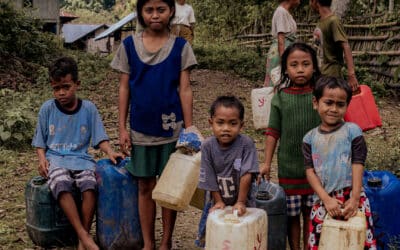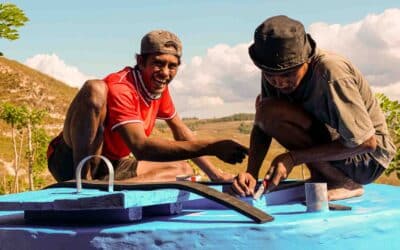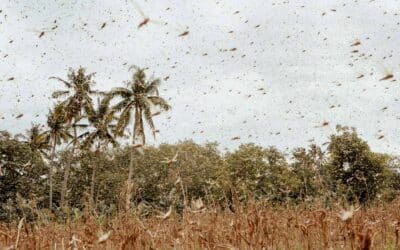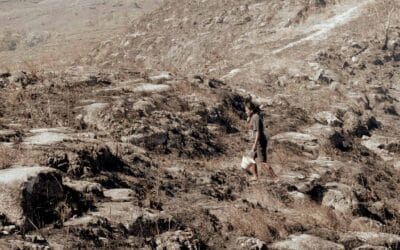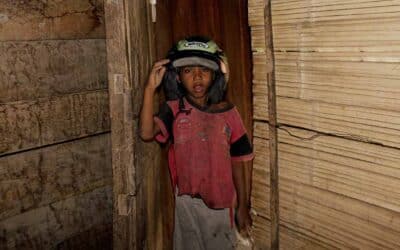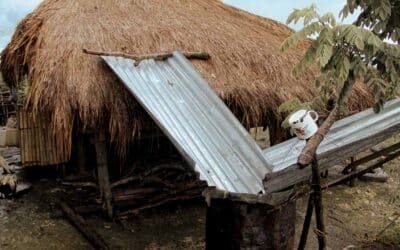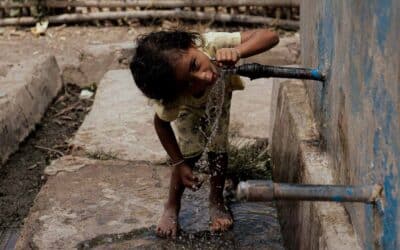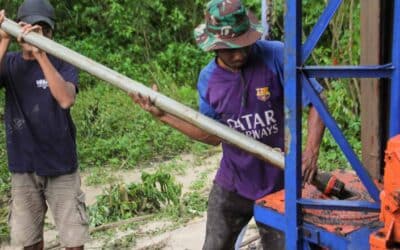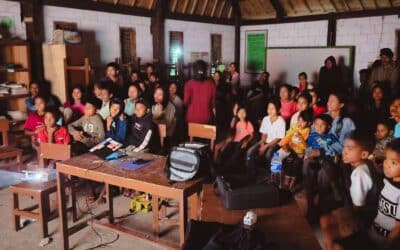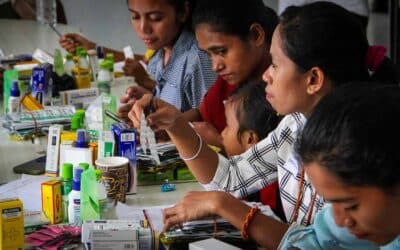For CHF 2245, you can build a ferrocement reservoir of 5350 liters, giving safe water to 15 people in East Sumba for more than 10 years. Each reservoir means fewer illnesses, more education, and dignity for families. Donate today and change lives.
Illness often begins long before someone arrives at the hospital. Our campaigns on smoking, waste management, alcohol, and sexual health display straightforward messages across schools and village walls in local languages. Through simple posters, talks, and games, we help protect thousands of children.
Donate
Support Care
Programs
All projects
Quick News
Field updates
Stories
Field stories
Do you know what actions Fair Future is taking to solve the problem of lack of clean water?
The Water Connections program aims to provide fair and safe access to clean water. This initiative not only prevents diseases and reduces health risks, but also sustains lives, decreases infant mortality, and promotes economic prosperity.
The Water Shortages category examines the health consequences of insufficient access to water in ultra-rural settings. Articles document how water scarcity increases the risk of dehydration, poor hygiene, waterborne diseases, and infection, particularly among children and vulnerable populations. Interventions focus on emergency water access, infrastructure repair, temporary supply solutions, and community-level risk reduction. Aligned with WHO water and public health standards, this category highlights how rapid and targeted responses to water shortages prevent disease, stabilize health conditions, and support community survival in resource-limited environments.
Eight Ferro-Cement Reservoirs Hambarita
Eight ferro-cement reservoirs in Hambarita now provide safe, filtered water to 120 people. Built with local skills, they improve health, hygiene, and quality of life for decades in one of East Sumba’s most remote areas.
Unmatched Laindatang Rainwater Reservoir
Fair Future built a 115,000-litre triple-filtered rainwater reservoir in remote Laindatang, East Sumba, overcoming extreme conditions to ensure clean water and health security.
Clean water tanks built for isolated families
In Hambarita, Fair Future builds 8 clean water tanks to serve 150 people living in ultra-rural poverty. With no roads, electricity, or healthcare, these reservoirs offer essential health protection.
Agriculture in Danger Climate and Drought Effects
Climate change and extended droughts are straining farmers, complicating food production and jeopardizing livelihoods. To address these challenges, Fair Future Foundation’s Water Connections program and health initiatives offer sustainable solutions that ensure access to clean water, enhance nutrition, and bolster rural economies.
WMO Confirms 2024 as Warmest Year Impacting Water Access
The WMO has declared 2024 as the warmest year on record, with temperatures soaring to 1.55°C above pre-industrial levels. In Indonesia’s most remote areas, this exacerbates water shortages and leads to worsening health problems, malnutrition, and disease outbreaks. Fair Future’s Water Connections program is actively tackling this critical situation.
Health, Wealth, and Inequality in Rural Areas
In rural regions, disparities in health and wealth contribute to ongoing cycles of inequality. The Fair Future Foundation addresses these issues by offering clean water, healthcare services, and educational opportunities. Discover how we empower communities to escape poverty and build healthier, more promising futures.
Families Fight for Clean Water Every Day
Families in rural areas encounter significant difficulties in obtaining clean and safe water, frequently depending on...
Recognizing Dehydration: Key Signs and Prevention Tips
Dehydration affects essential organs, especially in rural regions with restricted access to clean water. Discover the crucial warning signs and prevention methods, as well as how Fair Future Foundation’s #WaterConnections initiative contributes sustainable solutions for maintaining hydration in vulnerable communities. Taking action can be life-saving.
Courage and Determination at Laindatang Water Connections
Our team at the drilling site of Phase 3 of the Laindatang Water Connection Project in East Sumba demonstrates...
Matawai the Shades of Water: Mbinudita’s Water Journey
Our documentary, "Matawai de Shades of Water," premiered in the remote village of Mbinudita. The film explores the...
Empowering Rural Women Health Workers
In the Mahu sub-district of Wairara, health workers from Kawan Sehat diligently restocked their medication supplies...



